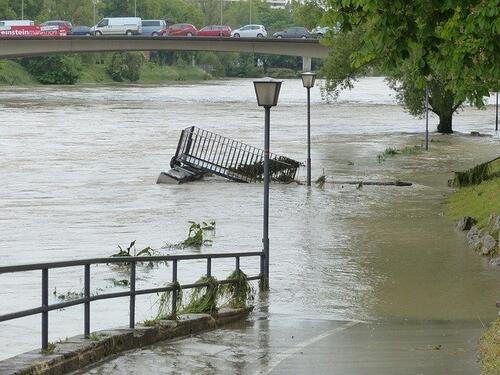
Waves of migrants escaping sea level rise could flood urban centres inland
A University of Waterloo researcher offers the first clear tool to predict where climate migrants could move to, and how this will affect communities

A University of Waterloo researcher offers the first clear tool to predict where climate migrants could move to, and how this will affect communities
By Media RelationsOn the heels of a recent warning from the United Nations High Commissioner for Refugees that climate change will force millions around the world to relocate away from coastal areas, a new study co-authored by a University of Waterloo researcher offers the first clear tool to predict where these climate migrants could move to, and how this will affect communities.

The report is a collaboration between professor Juan Moreno-Cruz, Canada Research Chair in Energy Transitions at the Faculty of Environment, and coauthors Caleb Robinson and Bistra Dilkina, at the University of Southern California. It assesses the broader impacts of climate change on communities displaced by rising sea levels and those receiving an influx of migrants. Their framework is the first to aggregate patterns that could help prepare policy responses by local communities and governments.
“As humans leave the coasts they are going to put enormous pressure on inland areas. This means tighter labour markets, increased housing costs and very likely increased income inequality. This migration will have political consequences,” said Moreno-Cruz. “Of course, migration to other cities can also have positive impacts; new migrants can improve productivity as they bring with them human capital accumulated elsewhere. We can’t possibly account for all the effects, but the model is agnostic about specific outcomes.
“It’s predicted that by 2030, 40 per cent of the world’s urban land will be on high-frequency flood zones. Using data from the National Oceanic and Atmospheric Administration, the team adjusted for “business-as-usual” migration and found that in the United States approximately 56 per cent of counties should prepare for increased migrant influxes.
“For the purposes of this study we focused on the United States, but the framework we have created can begin to lay a foundation for migration prediction in Canada and around the world,” said Moreno-Cruz. “We need to accept that this is very likely going to happen and it’s going to be incredibly disruptive if we are not prepared.”
The report, Modeling migration patterns in the USA under sea-level rise, published in PLOS ONE, can be found here.

Read more
As the world commemorates Earth Day 2024, a Waterloo researcher shares how we can unlock more Canadian restoration solutions with community and academic collaboration

Read more
Waterloo launches first-of-its-kind interdisciplinary graduate diploma in climate change to provide additional resources for the global climate crisis

Read more
The Future Cities Institute founded by CAIVAN will bring together leading minds from across sectors to solve the most challenging and urgent issues facing global cities.
The University of Waterloo acknowledges that much of our work takes place on the traditional territory of the Neutral, Anishinaabeg and Haudenosaunee peoples. Our main campus is situated on the Haldimand Tract, the land granted to the Six Nations that includes six miles on each side of the Grand River. Our active work toward reconciliation takes place across our campuses through research, learning, teaching, and community building, and is co-ordinated within the Office of Indigenous Relations.